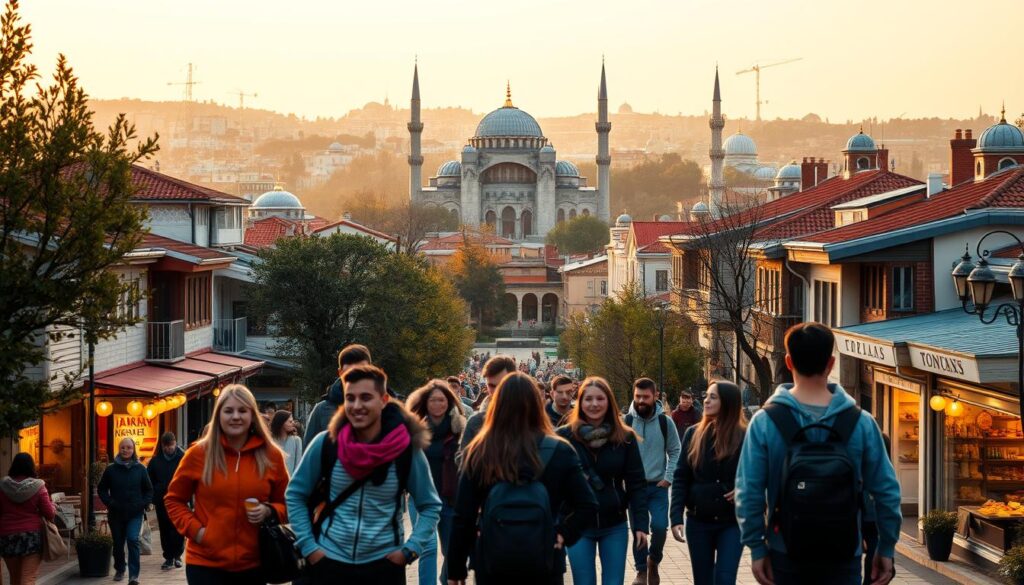Find Your Perfect Study Program in Poland
Explore hundreds of programs at top Polish universities tailored to international students.
Admission Process for Polish Universities
Warsaw University campus, one of Poland’s prestigious educational institutions
The application process for Polish universities is straightforward but requires careful attention to deadlines and documentation. Here’s a step-by-step guide to help you navigate the admission process:
Step-by-Step Application Guide
- Research Programs and Universities – Poland has over 400 universities offering programs in English. Use the official Go-Poland portal to explore options.
- Check Eligibility Requirements – Ensure your previous education qualifications are recognized in Poland and meet program-specific requirements.
- Prepare Required Documents – Gather all necessary documentation, including translated and apostilled certificates.
- Submit Your Application – Apply directly through the university’s online portal or through a centralized system like University Poland.
- Pay Application Fee – Most universities charge an application fee between 20-200 EUR.
- Wait for Acceptance Letter – This is a crucial document needed for your visa application.
Required Documents for University Application
- Completed application form
- High school diploma or bachelor’s degree certificate (for master’s programs)
- Transcript of records/academic performance
- Proof of English proficiency (IELTS/TOEFL) or Polish language certificate
- Copy of passport
- Passport-sized photographs
- Motivation letter (for some programs)
- CV/Resume (for master’s and doctoral programs)
Important: Application deadlines vary by university but typically fall between May and July for the fall semester and November to January for the spring semester. Some popular programs may close applications earlier, so apply as soon as possible.
Scholarships and Financial Aid for International Students
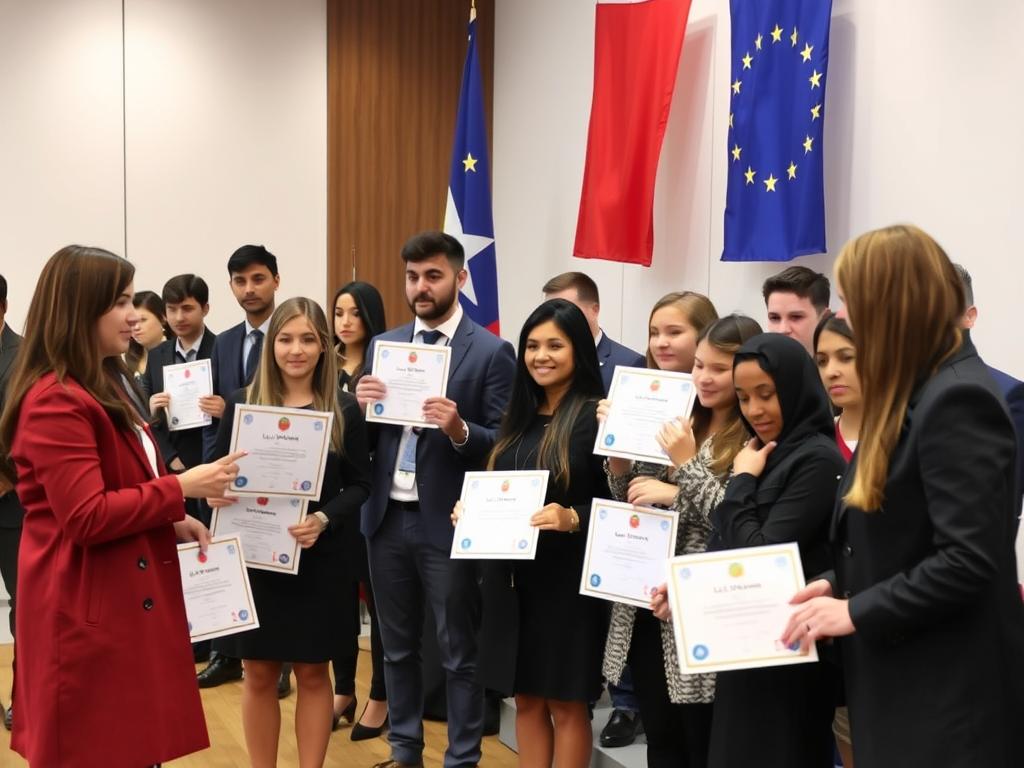
International students receiving government scholarships at a Polish university
Poland offers various scholarship opportunities for international students to help finance their education. These range from government-funded programs to university-specific scholarships.
Government Scholarship Programs
Banach Scholarship Program
For students from Eastern Partnership countries pursuing master’s degrees in engineering, sciences, and technology.
Full Tuition Monthly Stipend
Ignacy Łukasiewicz Scholarship
For students from developing countries interested in technical sciences, engineering, and agriculture.
Full Tuition Monthly Stipend
Stefan Banach Scholarship
For master’s degree students from Central and Eastern European countries, Central Asia, and the Caucasus region.
Full Tuition Monthly Stipend
University-Specific Scholarships
Many Polish universities offer their own scholarships based on academic merit, research potential, or specific talents. These scholarships may cover partial or full tuition fees and sometimes include a monthly stipend.
- University of Warsaw Scholarship Program
- Jagiellonian University Merit Scholarships
- Warsaw University of Technology Rector’s Scholarship
- Adam Mickiewicz University Scholarship Fund
- Wrocław University of Science and Technology Excellence Awards
Pro Tip: Apply for scholarships early as most have limited spots and competitive selection processes. Contact the international office of your chosen university for specific scholarship opportunities available to international students.
Tuition Fees and Living Expenses in Poland
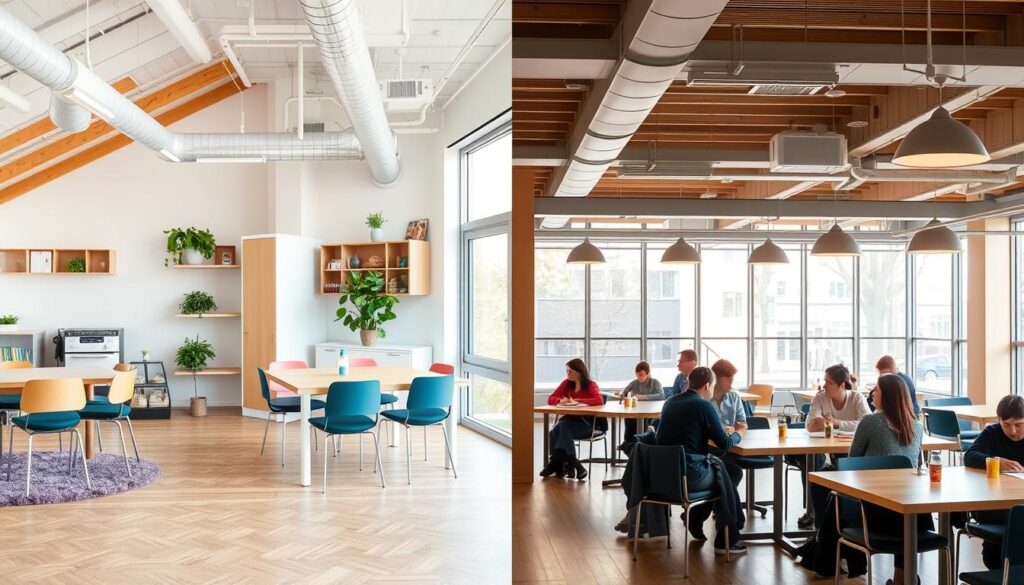
Student accommodation and campus facilities at a Polish university
One of Poland’s biggest advantages is its relatively low cost of education and living compared to other European countries. Understanding these costs will help you plan your finances effectively.
Tuition Fee Structure
| Program Level | EU/EEA Students | Non-EU Students |
| Bachelor’s Degree | Free (Public Universities) | €2,000 – €4,000 per year |
| Master’s Degree | Free (Public Universities) | €3,000 – €5,000 per year |
| Medical Programs | Free or Subsidized | €8,000 – €12,000 per year |
| MBA Programs | €5,000 – €8,000 per year | €8,000 – €12,000 per year |
| PhD Programs | Free (Public Universities) | €3,000 – €4,000 per year |
Monthly Living Expenses in Major Polish Cities
Warsaw (Capital)
- Accommodation: €250-400
- Food: €150-200
- Transportation: €20-30
- Utilities: €80-120
- Entertainment: €100-150
- Total: €600-900 per month
Kraków/Wrocław/Poznań
- Accommodation: €200-350
- Food: €120-180
- Transportation: €15-25
- Utilities: €70-100
- Entertainment: €80-120
- Total: €485-775 per month
Financial Requirement: For your Poland student visa application, you need to prove you have at least 776 PLN (approx. €170) per month for living expenses, plus funds for accommodation and a return ticket. In practice, budget for at least €600-700 monthly for comfortable living.
Need Help Planning Your Budget?
Get a personalized cost estimate based on your program and city of choice.
Poland Student Visa Application Process

Required documents for Poland student visa application
Unless you are an EU/EEA/Swiss citizen, you will need a student visa to study in Poland. The process requires careful preparation and timely application.
Visa Application Steps
- Receive University Acceptance – Secure your admission and get an official acceptance letter from a Polish university.
- Locate Polish Consulate – Find the nearest Polish embassy or consulate in your country.
- Schedule Appointment – Book a visa appointment through the e-Konsulat website.
- Complete Application Form – Fill out the national visa application form online.
- Gather Required Documents – Collect all supporting documents (see list below).
- Attend Visa Interview – Submit your documents and attend the interview at the consulate.
- Pay Visa Fee – The fee varies by country but is typically around €60-80.
- Wait for Processing – Visa processing usually takes 15 days but can take longer during peak seasons.
Required Documents for Student Visa
- Completed and signed visa application form
- Valid passport (valid for at least 3 months beyond your planned departure)
- Two passport-sized photos
- University acceptance letter
- Proof of payment of tuition fees (if applicable)
- Proof of financial means (bank statements showing at least 776 PLN per month plus accommodation costs)
- Health insurance covering at least €30,000
- Proof of accommodation in Poland
- Travel itinerary or flight reservation
- Language proficiency certificates (English or Polish)
Important: Apply for your visa at least 2-3 months before your planned departure. The D-type national visa allows you to stay in Poland for up to one year. For longer stays, you’ll need to apply for a Temporary Residence Permit after arriving in Poland.
Temporary Residence Permit
If your studies last longer than a year, you’ll need to apply for a Temporary Residence Permit at the Voivodship Office in your city. Apply at least 45 days before your visa expires. The first permit is valid for 15 months and can be renewed for up to 3 years.
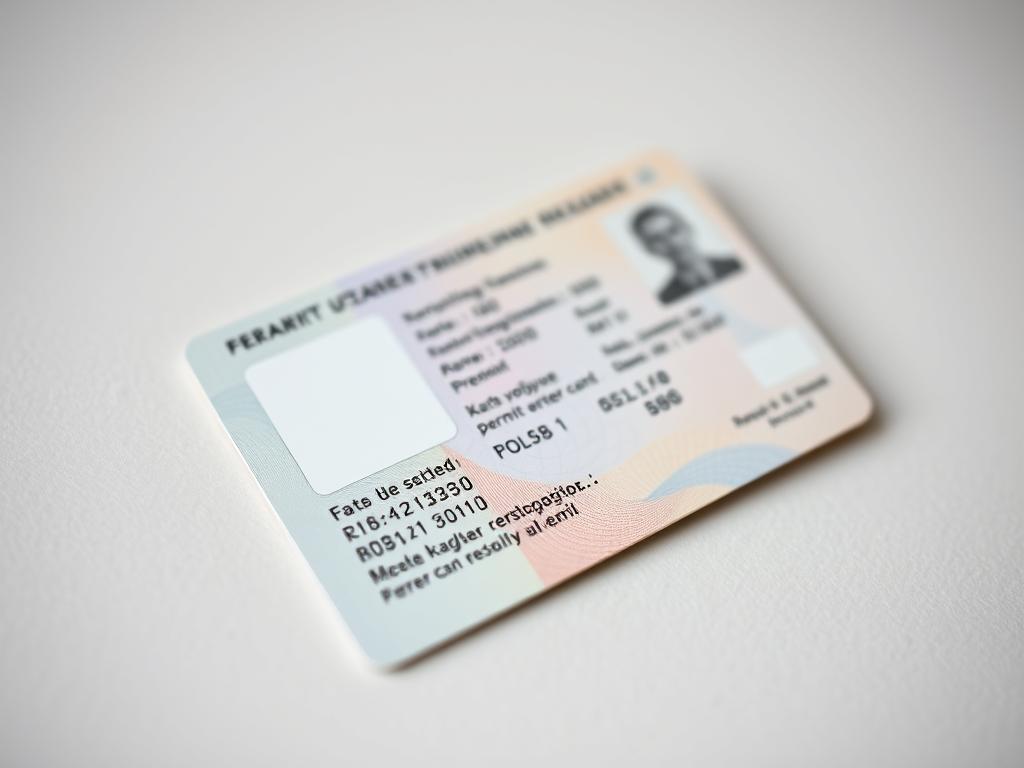
Polish Temporary Residence Permit card (Karta pobytu)
Part-Time Work Opportunities for International Students

International student working part-time in a café in Warsaw
Poland allows international students to work while studying, providing an opportunity to gain experience and supplement your income. Understanding the regulations and opportunities is essential for balancing work and studies.
Work Regulations for International Students
EU/EEA Students
- No work permit required
- No restrictions on working hours
- Same employment rights as Polish citizens
- Must register residence if staying longer than 3 months
Non-EU/EEA Students
- No work permit required with valid residence permit
- Limited to 20 hours per week during academic terms
- Full-time work allowed during official holiday periods
- Must maintain good academic standing
Common Part-Time Jobs for International Students
Hospitality Industry
Cafés, restaurants, hotels, and tourist services often hire English-speaking staff.
Average Pay: 18-25 PLN/hour
Customer Service
Call centers and international companies seek multilingual representatives.
Average Pay: 20-30 PLN/hour
Teaching & Tutoring
Teaching your native language or academic subjects to Polish students.
Average Pay: 40-80 PLN/hour
Pro Tip: Many universities have career centers that help students find part-time work. Companies like IBM, Google, and Amazon have offices in major Polish cities and often hire international students for internships and part-time positions.
Post-Graduation Settlement Options in Poland

International graduate receiving a job offer from a Polish company
Poland offers attractive options for international graduates who wish to stay and work after completing their studies. The country’s growing economy and demand for skilled professionals make it an appealing destination for career development.
Post-Study Work Options
- Post-Graduation Job Search – After graduation, you can apply for a temporary residence permit for job-seeking purposes, valid for up to 9 months.
- Work Permit – Once you find employment, your employer can help you obtain a work permit or you can apply for a residence permit based on employment.
- EU Blue Card – For highly qualified professionals with higher education and a job offer with a salary at least 1.5 times the average Polish salary.
- Business Activity – You can start your own business in Poland and apply for a residence permit based on entrepreneurship.
Path to Permanent Residence
After residing legally in Poland for a continuous period, you may be eligible for permanent residence:
- 4 years of continuous residence with a temporary residence permit
- 2 years if married to a Polish citizen (for at least 3 years)
- Proof of stable income and accommodation
- Health insurance
- Basic knowledge of Polish language (B1 level certificate required)
Note: Time spent on a student visa counts as half-time toward the permanent residence requirement. For example, 2 years on a student visa counts as 1 year toward the 4-year requirement.
Polish Job Market for International Graduates
High-Demand Sectors
- IT and Software Development
- Business Services and BPO
- Engineering and Manufacturing
- Finance and Banking
- Healthcare and Pharmaceuticals
Average Starting Salaries
- IT Specialists: 6,000-10,000 PLN/month
- Engineers: 5,000-8,000 PLN/month
- Business/Finance: 4,500-7,000 PLN/month
- Marketing: 4,000-6,000 PLN/month
- Healthcare: 4,500-8,000 PLN/month
Frequently Asked Questions About Studying in Poland
Is Polish language mandatory for studying in Poland?
No, Polish language is not mandatory for international students. Many universities offer programs taught entirely in English. However, learning basic Polish will help you integrate better into daily life and may be required for permanent residence applications later.
Can I extend my student visa in Poland?
The D-type national visa cannot be extended. Instead, you should apply for a Temporary Residence Permit at least 45 days before your visa expires. This permit can be valid for up to 3 years and can be renewed as needed for the duration of your studies.
Can my family join me while I study in Poland?
Yes, your family members can join you in Poland. They need to apply for a residence permit as accompanying family members. You must prove you have stable and regular income to support them during their stay. With a temporary residence permit, your family members can also work and study in Poland.
What happens if my visa application is rejected?
If your visa application is rejected, you will receive a written explanation. Common reasons include insufficient financial proof, incomplete documentation, or invalid travel insurance. You can appeal the decision or submit a new application addressing the issues mentioned in the rejection letter.
Are Polish degrees recognized internationally?
Yes, Polish university degrees are recognized throughout the European Union and many countries worldwide. Poland is a signatory to the Bologna Process, ensuring compatibility of higher education qualifications across Europe. Many Polish universities also have international accreditations for specific programs.
Get Personalized Assistance for Your Poland Study Journey
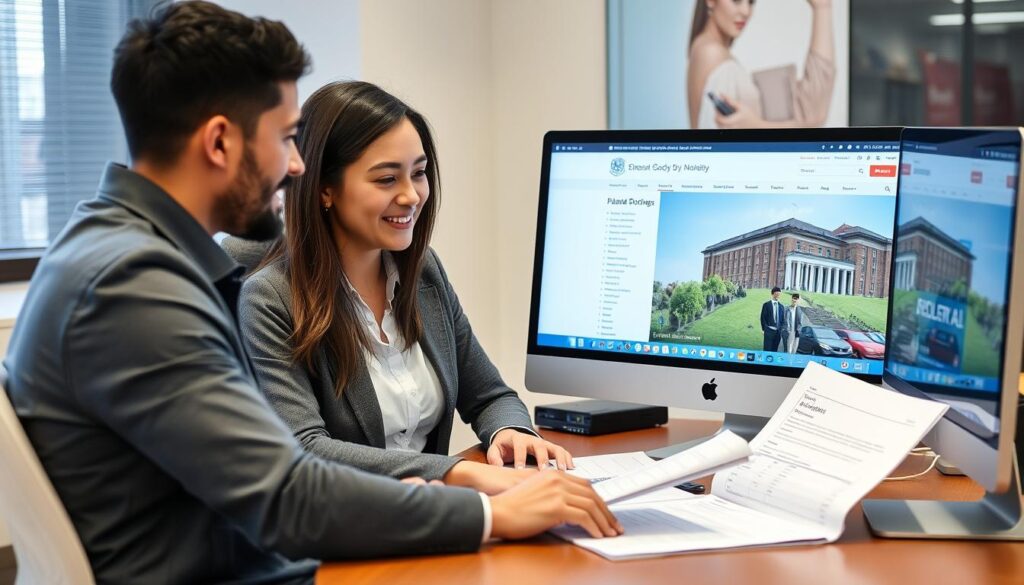
Expert consultation for Poland study visa and university applications
Need help navigating the Poland study visa process or finding the right program? Our education consultants specialize in helping international students achieve their academic goals in Poland.
Start Your Poland Study Adventure Today
Poland offers international students an excellent combination of high-quality education, affordable living costs, and rich cultural experiences. With its central European location, growing economy, and post-graduation opportunities, it’s an ideal destination for ambitious students looking to build their future.
Begin your journey by exploring programs, preparing your application documents, and planning your finances. With proper preparation and the right guidance, your dream of studying in Poland can become a reality.
Ready to Take the Next Step?
Explore programs at top Polish universities and start your application process today.


